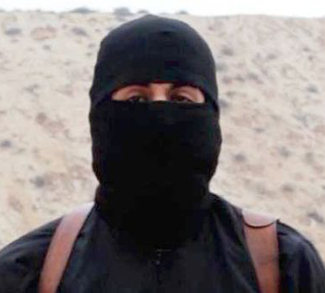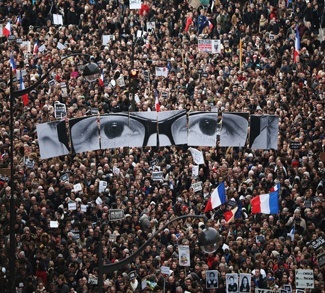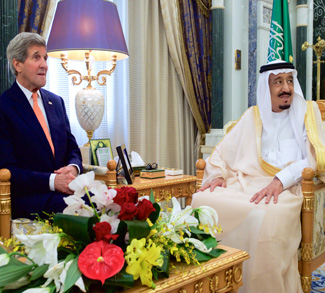In the two-day summit in Washington (March 31 – April 1), representatives of 49 countries interacted on the danger of terrorists acquiring nuclear weapons as “the most immediate and extreme threat to global security.”
Have the four meetings of NSS since 2009 achieved the objective? It is a moot question. Radioactive materials in numerous countries are still vulnerable. International nuclear security architecture continues to be fragmented and predominantly based on nonbinding measures. And the NSS has not left behind a successor.
Russia’s refusal to participate in Washington Summit dealt a blow to the success of NSS because she has the largest stock of weapons-usable materials in the world.
Concerns about the security of nuclear holdings apply to various countries, ranging from Pakistan, where terrorist groups are highly active, to the United States, who’s Y-12 National Security Complex in Oak Ridge, Tennessee – home to large stocks of HEU – was infiltrated in 2012 by a group of activists. Keeping away North Korea and Iran from the NSS puts the very concept of the summit into controversy.
Without true multilateral initiatives, success in battling nuclear terror may remain elusive. Initiatives like the Global Initiative to Combat Nuclear Terrorism and the G-8 Global Partnership against the Spread of Weapons of Mass Destruction, the International Atomic Energy Agency, the United Nations, European Union, and Interpol all have significant role to play.
Are the big nuclear powers really willing to make a breakthrough and secure the world against the threat of nuclear weapons falling in wrong hands? The summit did not propose concrete steps towards this objective.
Biden estimated the illicit Saudi resource transfer to jihadis at “hundreds of millions of dollars and tens of thousands of tons of weapons.”
Pakistan, the unstable nuclear power in South Asia, is vulnerable to nuclear pilferage. That notwithstanding, the U.S. has sold eight nuclear-capable F-16 Fighters to her on the plea of strengthening her thrust to quell terror and insurgency in her north. In the past, Pakistan has used American gifted weapons against India. It is the United States’ indirect recognition of Pakistan legitimizing use of the nuclear option. Put simply, the decision grossly contradicts the spirit of the NSS.
No less ambivalent is China. For the second time, China vetoed India’s demand of UN listing Azhar, the perpetrator of Mumbai carnage, and his organization JeM, as international terrorists. The timing of the veto is significant – when the NSS had just concluded the session. This is despite China claiming to be faced with the Uyghur “terrorists” in the eastern province of Xingjian.
Obviously, nuclear powers are dovetailing their nuclear capability to national interests. In an interview with the press in Washington, Adviser Sartaj Aziz made no bones that since Pakistan could not match India’s conventional war machine, it had to rely on nuclear option. He said in answer to a question as to what was the necessity of acquiring small tactical nuclear bomb technology from China. It grossly contradicts the entire NSS exercise.
The G-20 Turkey meeting did not react to Modi’s passionate appeal for a global effort to combat contemporary terrorism. His was a lone passionate appeal; the rest of them had other views.
From Washington, Modi headed to the autocratic monarchical state of Saudi Arabia with a twofold agenda: elicit anti-terror commitment from the Saudi king and talk trade. Saudi King Salman did condemn terrorism and denounced using religion for the sustenance of jihad. Who are the takers of the King’s token rhetoric on terror? The Western press didn’t take not of what was banner news for Indian media.
Expecting Saudi monarch to stand against terrorism is to ask the wolf abandon its nature. But Modi isn’t a politician of turbid imagination. Global terrorism — nuclear or non-nuclear— sans Saudi complicity is zero. Let me explain why.
The pact that binds Saudi monarchy to Abdul Wahhab in Diriyah in 1744 laid down that Wahhabis would aid the king in exchange for imposition of Wahhabism as the official form of Islam. Jointly they initiated jihad against Muslims in Arabia who refused to adopt the old Salafi ways as re-prescribed by Wahhab and upheld by King Saud, who was presented as Allah’s chosen monarch to whom all Muslims had to pledge baya, or absolute allegiance.
Between 1744 and 1818, Wahhabi preachers and fighters embedded their tenets and institutions into Arabian society. Wahhabism served Saud’s descendants in the ruling family as a bulwark against Arab nationalist rivals like Egypt, Syria, and Iraq, who were turning to the Soviets during the 1960s and 1970s. Faced with the rise of secularism and fueled by oil money, King Faisal ibn Abdulaziz al-Saud (1964–75) decided on the propaganda of Wahhabism, which proclaims the Kingdom of Saudi Arabia as the sole rightful defender of Islam.
With Soviets making inroads into Afghanistan in 1979, the House of Saud projected itself as the global defender of Muslims. The Saudis desire to weaponize Islamist ideology came as windfall to the U.S. and anti-Soviet West. The Saudis spent $4 billion per year on mosques, madrassas, preachers, students, and textbooks to spread the Wahhabi creed over the next decades. Thousands of Muslim centers sprang up along Pakistan’s border with Afghanistan, training not scholars but jihadis equipped with Wahhabi ideology and American weapons. The U.S. would not care for the consequences of arming jihadis. Al-Qaeda affiliates spread across the Middle East, the Balkans, the Caucasus, Central Asia, and South Asia. Success against the Soviets in Afghanistan meant divine confirmation of jihad as necessary for Islam’s global ascendance. Wahhabism in turn emerged as the “indispensable ideology.”
According to the Saudi monarchy’s official websites, Wahhabi charities and royal trusts spent millions of dollars recruiting students to more than 1,500 mosques, 210 Muslim centers, 202 Islamic colleges, and 2,000 madrassas and on staffing those institutions with nearly 4,000 preachers and missionaries in non-Muslim nations in central, southern, and southeast Asia, as well as in Africa, Europe, and North America. Adherents to Wahhabism used Saudi control of four-fifths of all Islamic publishing houses around the world to spread their fighting words into faraway places.
Freedom House, a Washington-based NGO reported 80 percent of the 1,200 mosques in the U.S. were constructed after 2001, mostly with Saudi financing. Hundreds of Saudi government publications filled with intolerance toward Christians, Jews, and other Americans, were disseminated across the country by 2006. By 2013, 75 percent of North American Islamic centers relied on Wahhabi preachers who promote anti-Western ideas.
Since 2011, 100 to 150 new mosques were under construction across France with Saudi funding. Saudi and Qatari Wahhabi charities controlled 60 percent of mosques in Italy by 2009. In Kazakhstan, the Mecca-based Muslim World League, long associated with disseminating Wahhabism, is funding construction of mosques. The intelligence service of India estimates more than $244 million has been spent by Saudi Wahhabis during the past decade to set up 40 new mosques and four new madrassas and take over hundreds of others across the subcontinent, from Kashmir in the north to Maharashtra in the west and Kerala in the south.
According to US Vice President Joe Biden, the Saudi actions were initially directed by Prince Bandar bin Sultan, the Kingdom’s former ambassador to Washington and ex–intelligence chief, who had warned prior to 9/11, that “the time is not far off, in the Middle East when it will be literally, ‘God help the Shias.’ More than a billion Sunnis have simply had enough of them.”
Biden estimated the illicit Saudi resource transfer to jihadis at “hundreds of millions of dollars and tens of thousands of tons of weapons.” In addition to ideology and training, for instance, al-Qaeda in the Arabian Peninsula is reported to have provided $20,000 in cash directly to the Paris terrorists. Radicals from no fewer than 18 nations all over the globe have joined the Islamic Caliphate army. More than 11,000 Wahhabi-radicalized foreigners had joined the Syrian jihad by September 2014, with French and British citizens predominating recruits from Europe.
Intelligence sources concur that Salman served as the royal family’s main fundraiser for jihadis in Afghanistan during the 1980s and in the Balkans during the 1990s. He also served as the main conduit between the Saudi state bureaucracy and extremist clerics in the Wahhabi clerical establishment, in addition to directing the Saudi High Commission for Relief of Bosnia and Herzegovina, which has been linked by NATO to al-Qaeda and other jihad organizations. More recently, after ascending the throne, Salman presented the 2015 King Faisal International Prize for Service to Islam to an Indian Muslim televangelist infamous for describing the 9/11 attacks as “an inside job” led by President George W. Bush.
Not surprisingly, one of Salman’s first official acts as monarch was to dismiss two influential officials who had opposed Wahhabi clergymen. He appointed the anti-democratic Muhammad bin Nayef as both crown prince and as interior minister, an office that controls the internal and external intelligence agencies. Nayef focuses on suppressing internal terrorism while turning a blind eye to its export abroad.
King Salman’s Operation Decisive Storm, ostensibly a 10-country Sunni offensive against Shiite Houthi rebels in Yemen on the Kingdom’s southern border, reinforces Sunni autocrats irrespective of negative consequences.
The purpose of scripting this detail about Saudi monarchy is to pose a question to the Indian policy planners. Are they hoping that against the backdrop of this deep and extensive involvement of the Saudi monarchy in jihadi terror, that token rhetoric of King Salman of Saudi Arabia as stated in the joint statement with Prime Minister Modi to be taken seriously? Can they name any world leader who is as seriously and sincerely committed to fighting terror as Modi is? India has to fight jihadi terror all alone and mind you, unless each India citizen girds up his loin to fight the deadly threat, this war cannot be won.
The opinions, beliefs, and viewpoints expressed by the authors are theirs alone and don’t reflect any official position of Geopoliticalmonitor.com.




